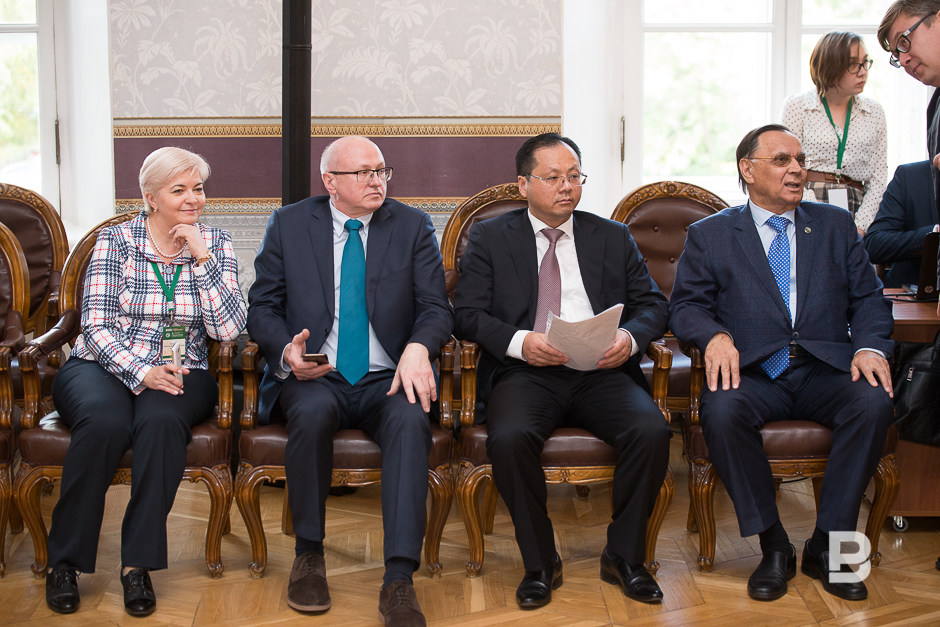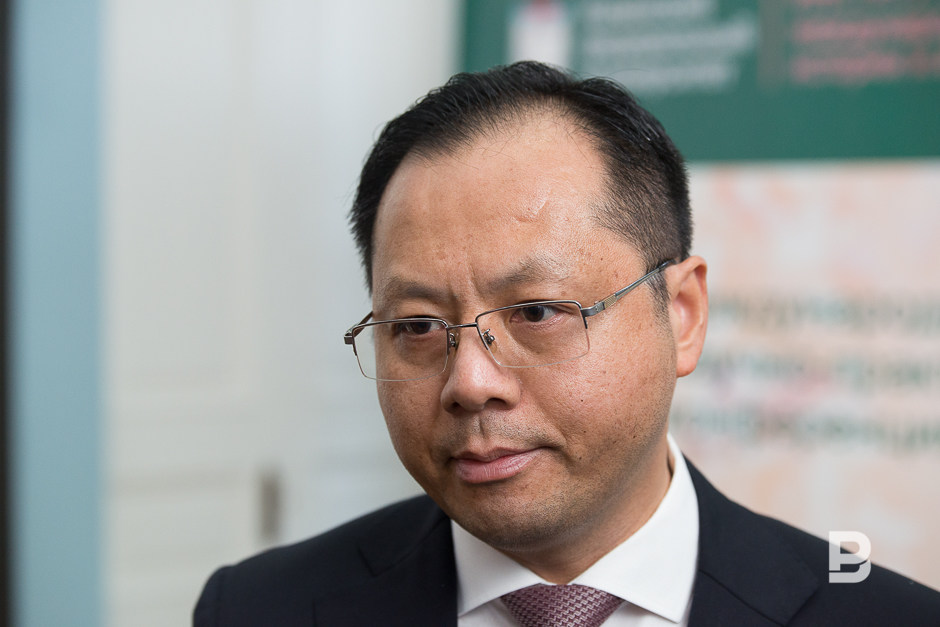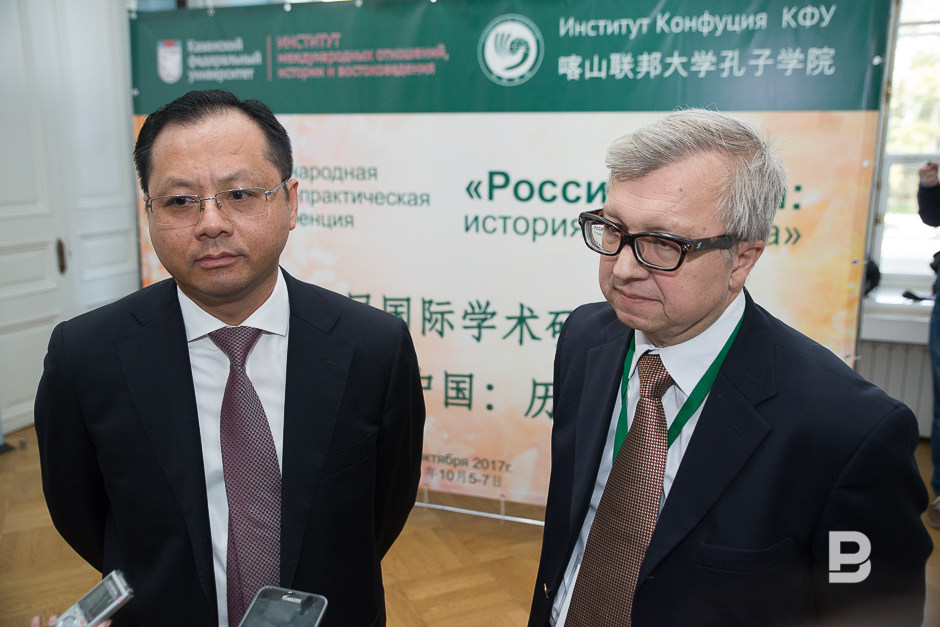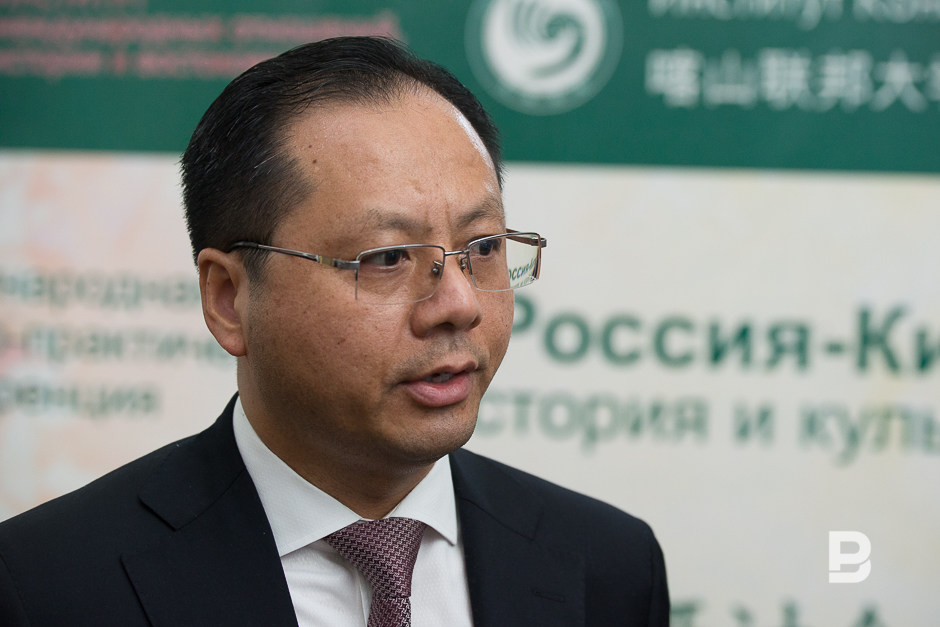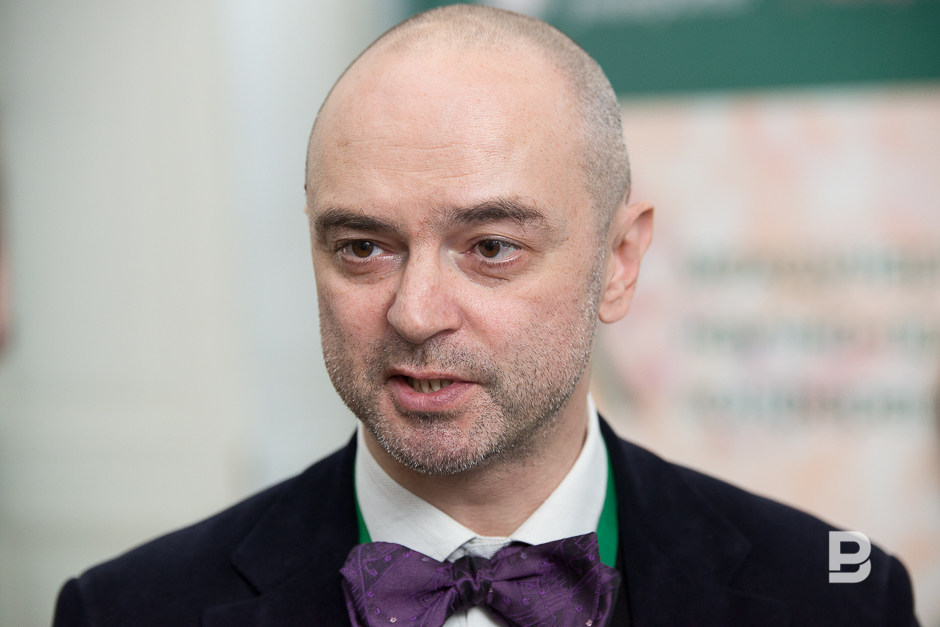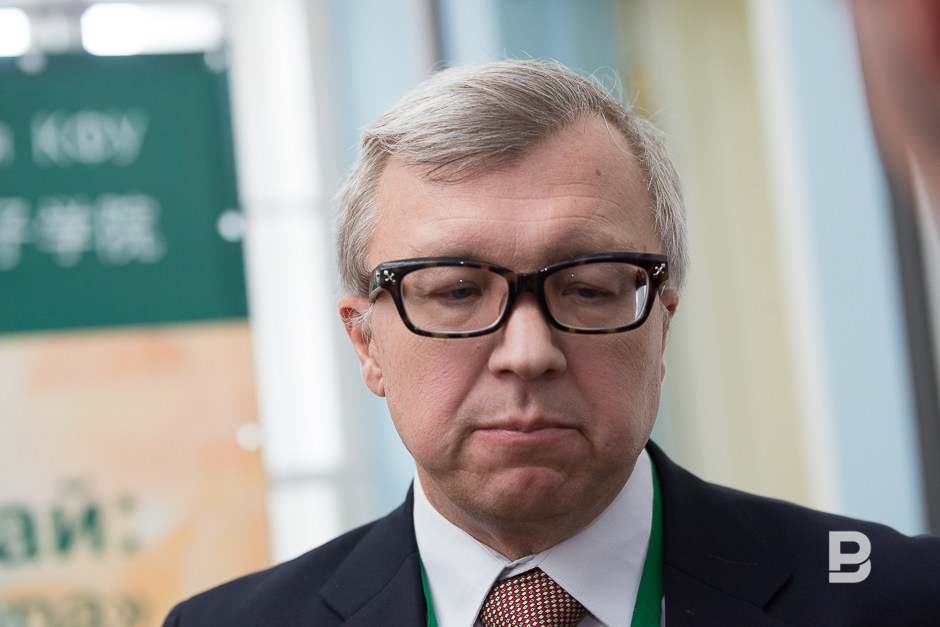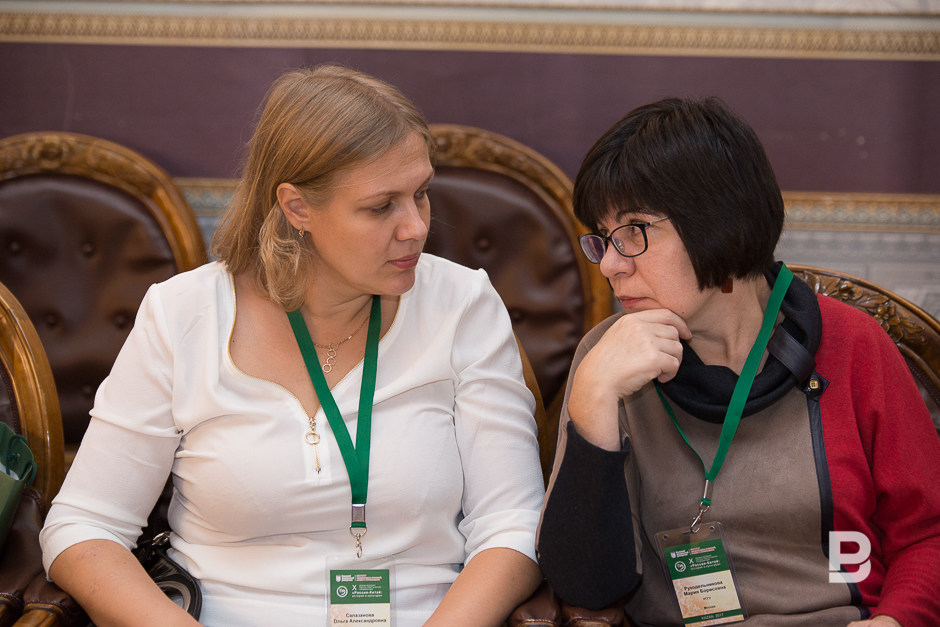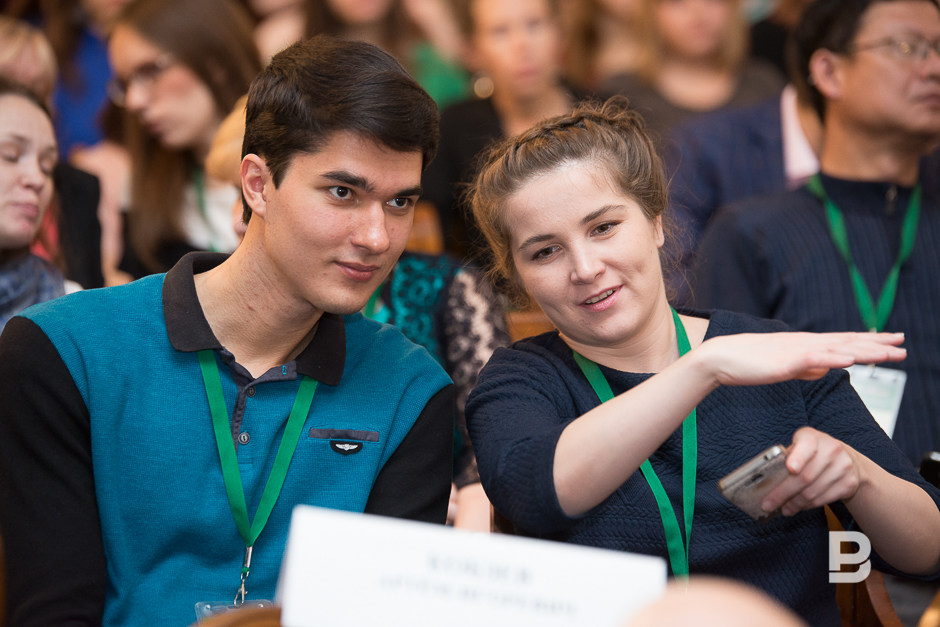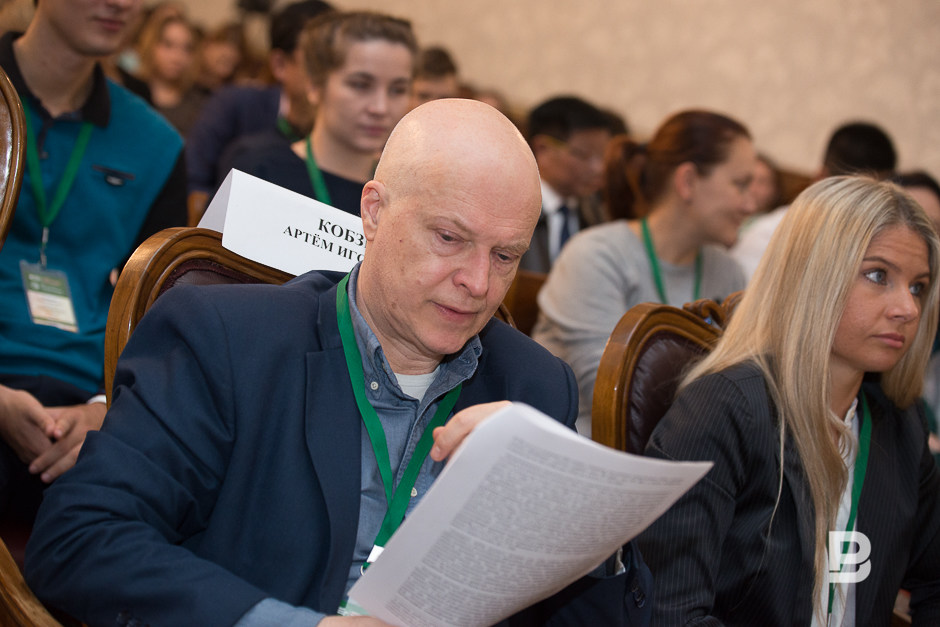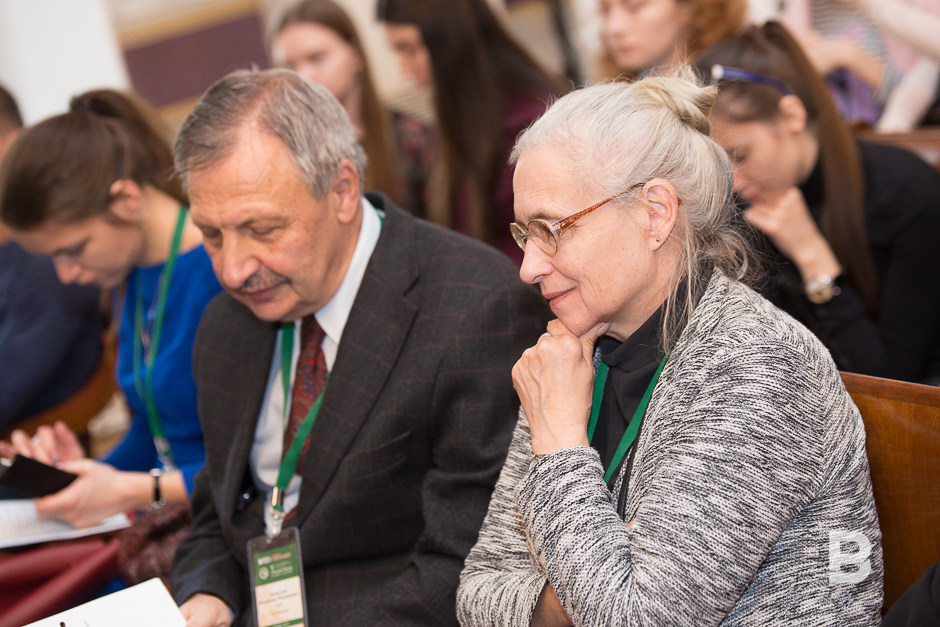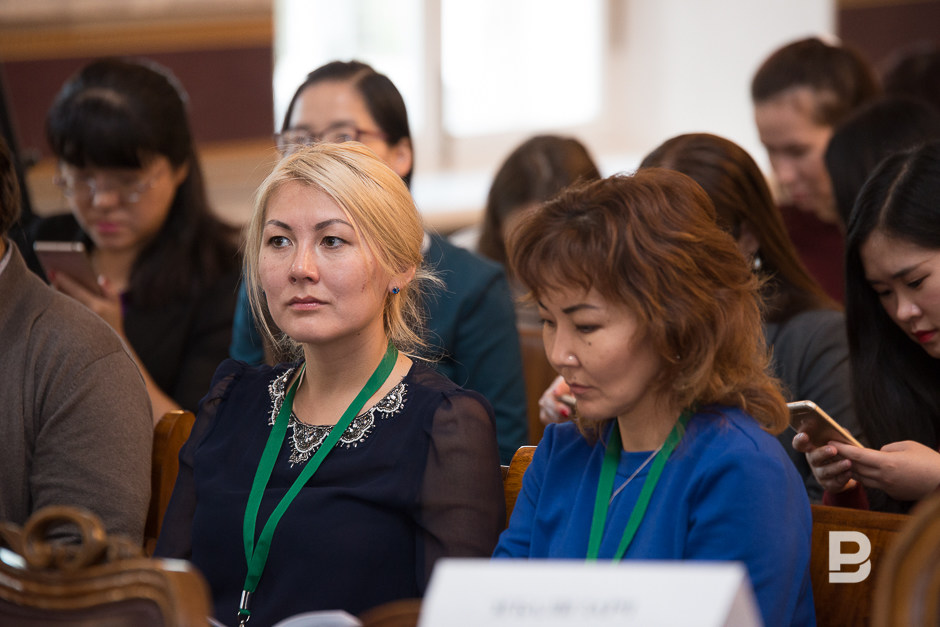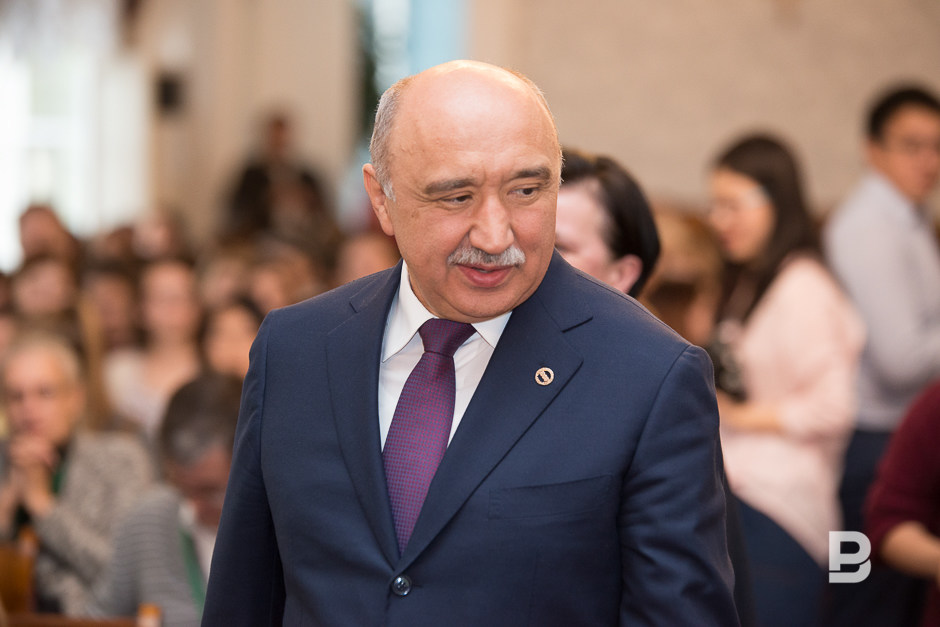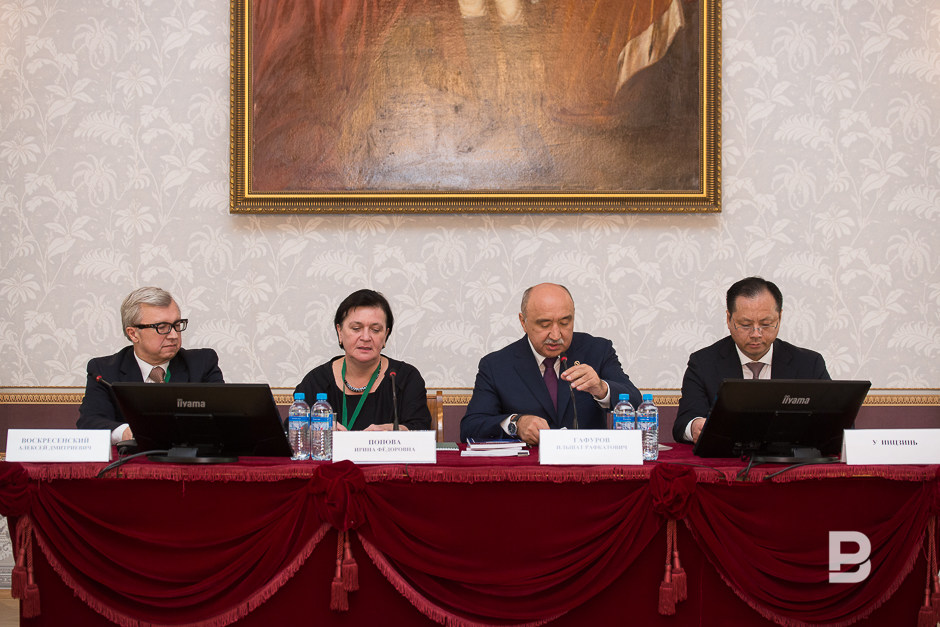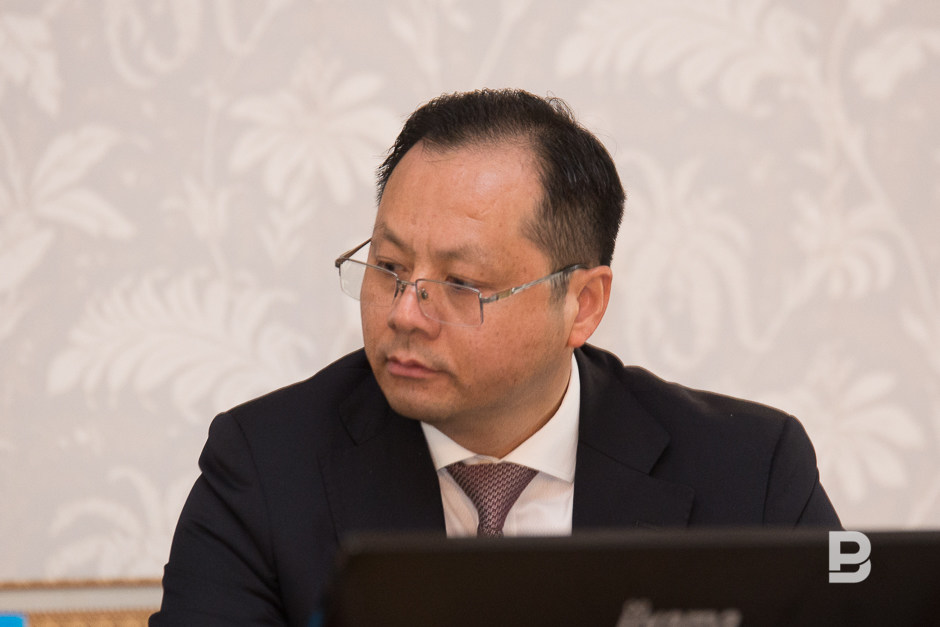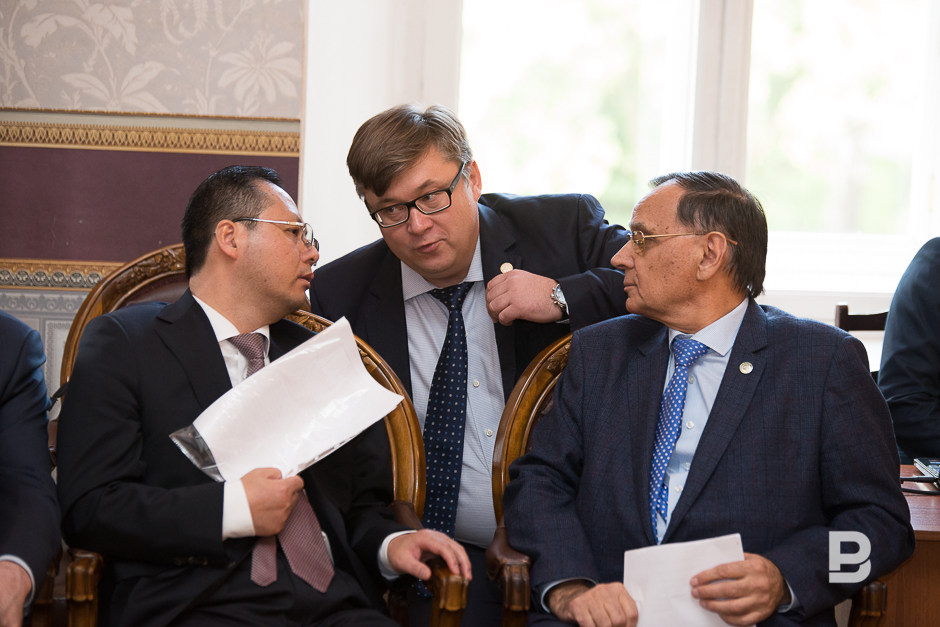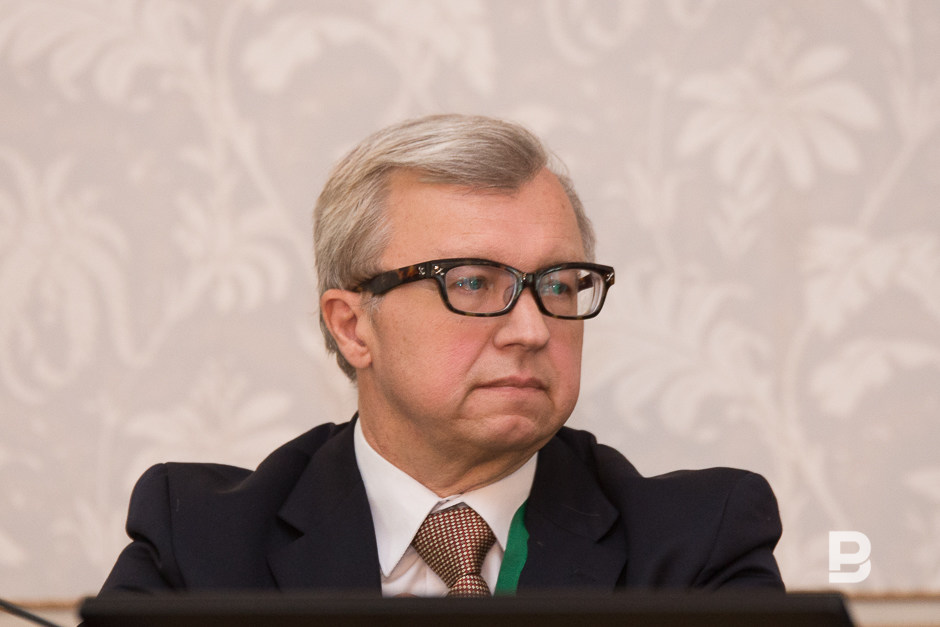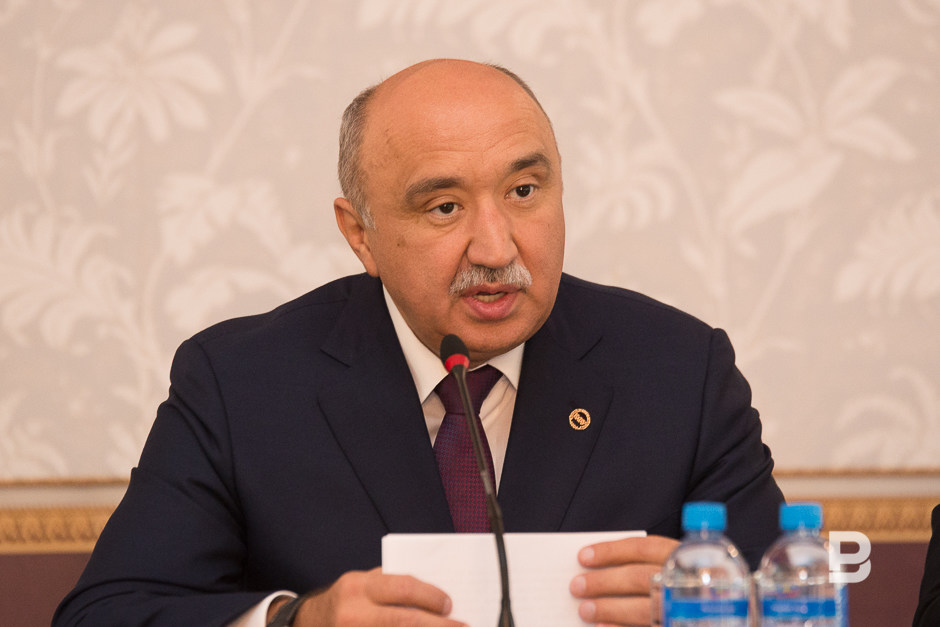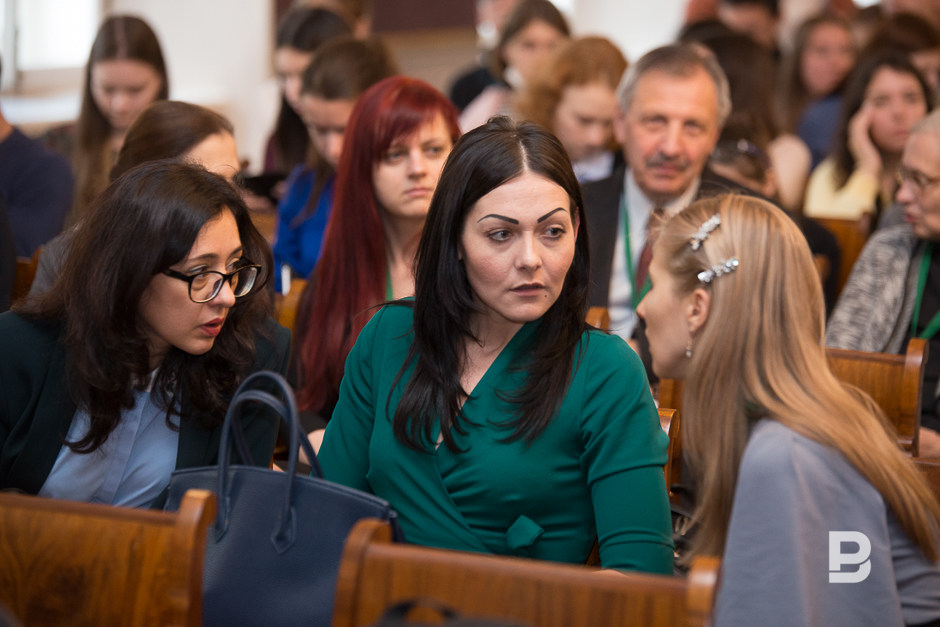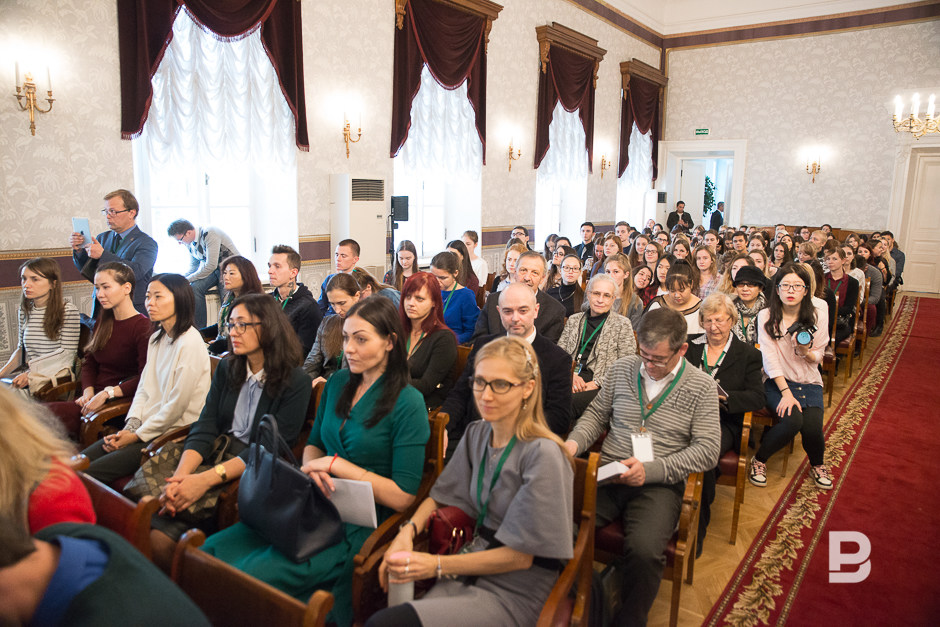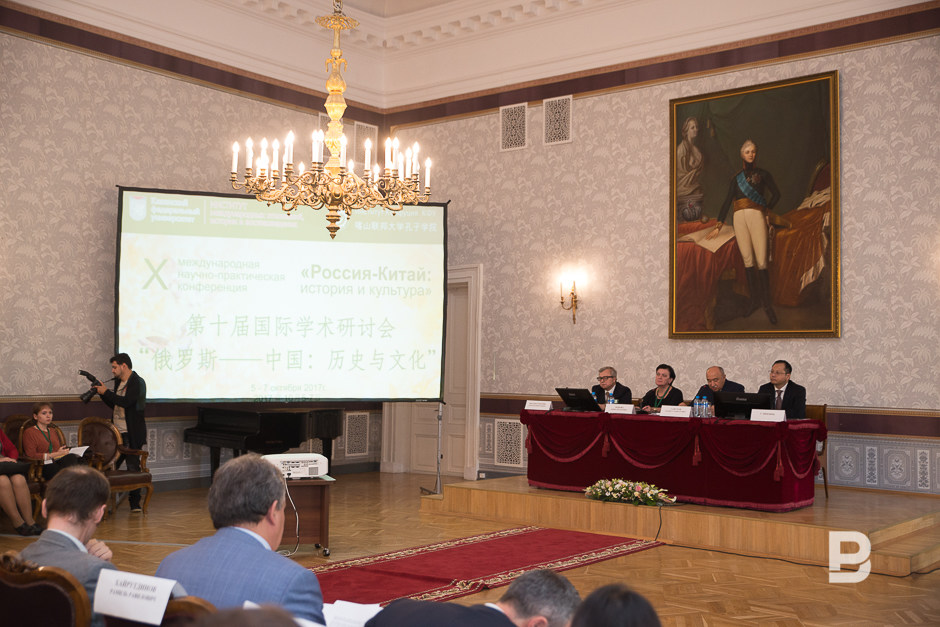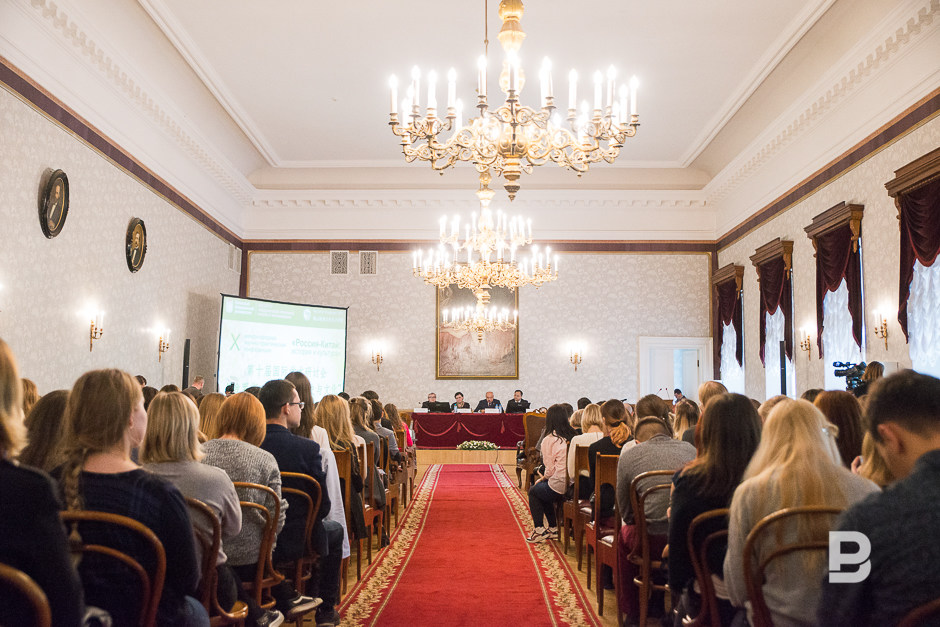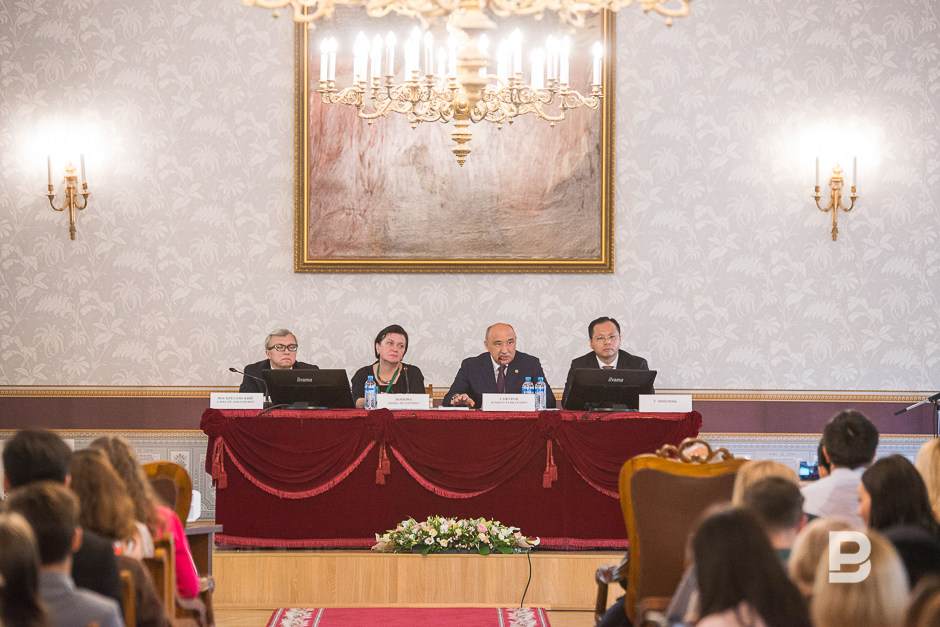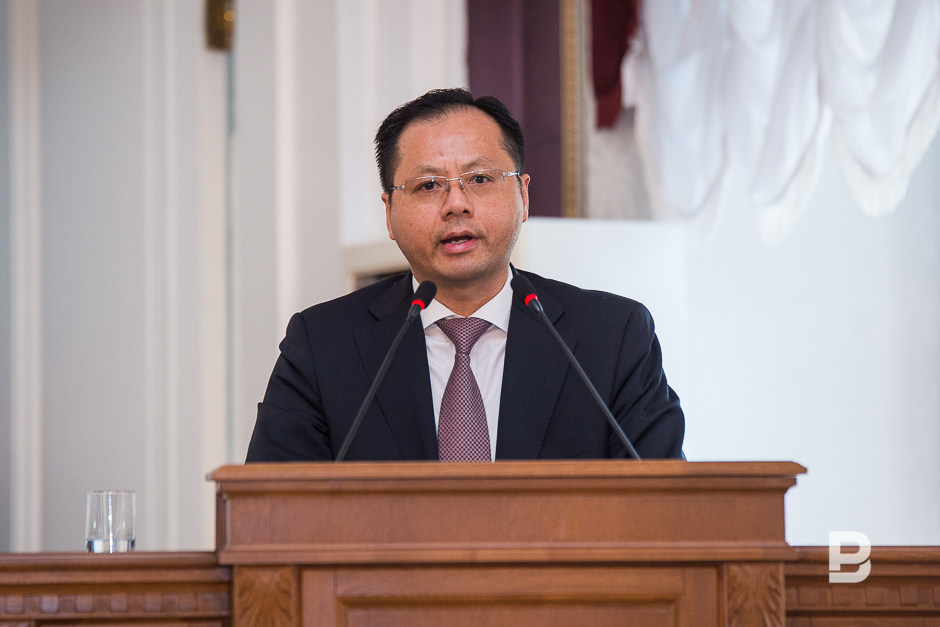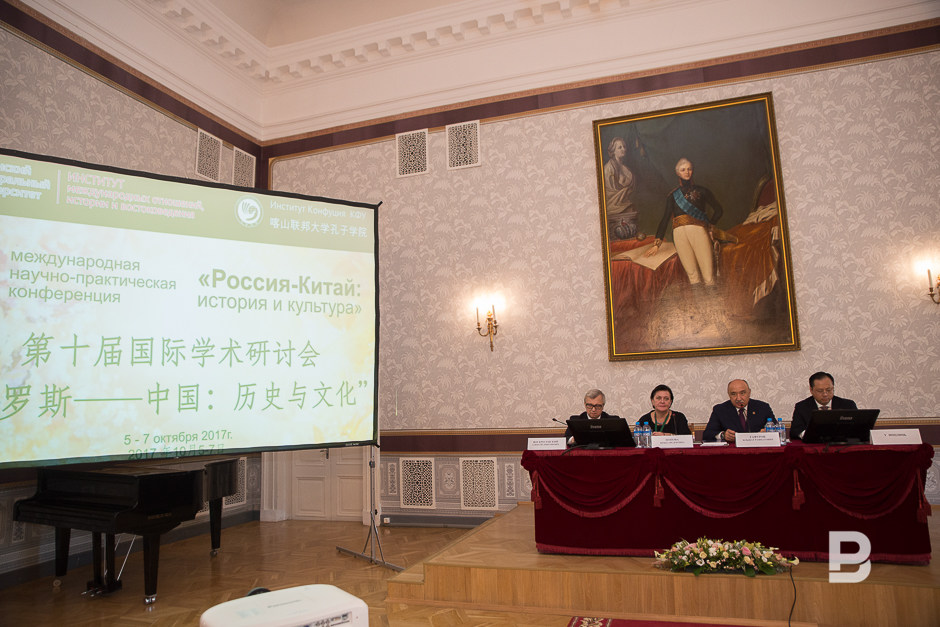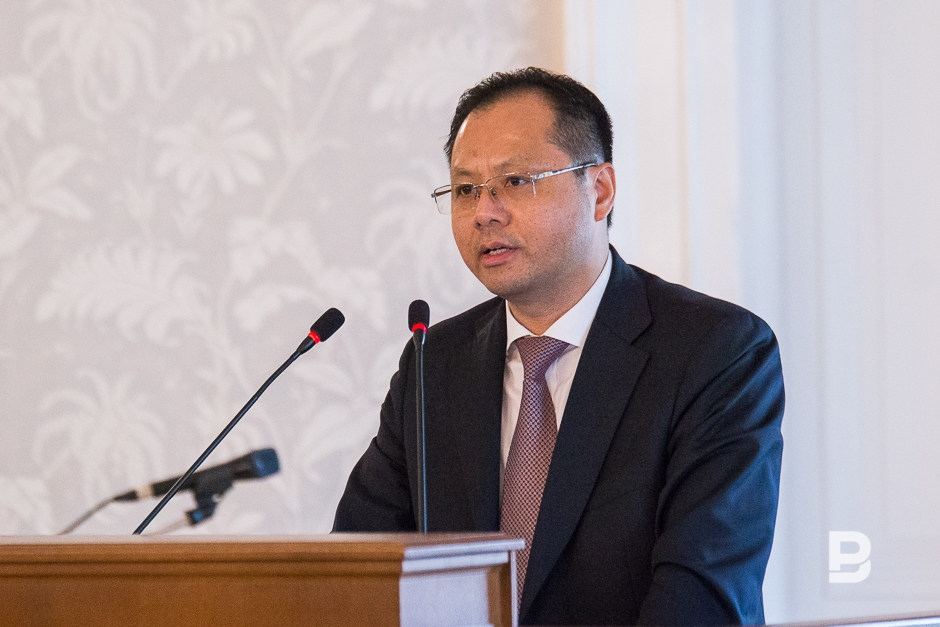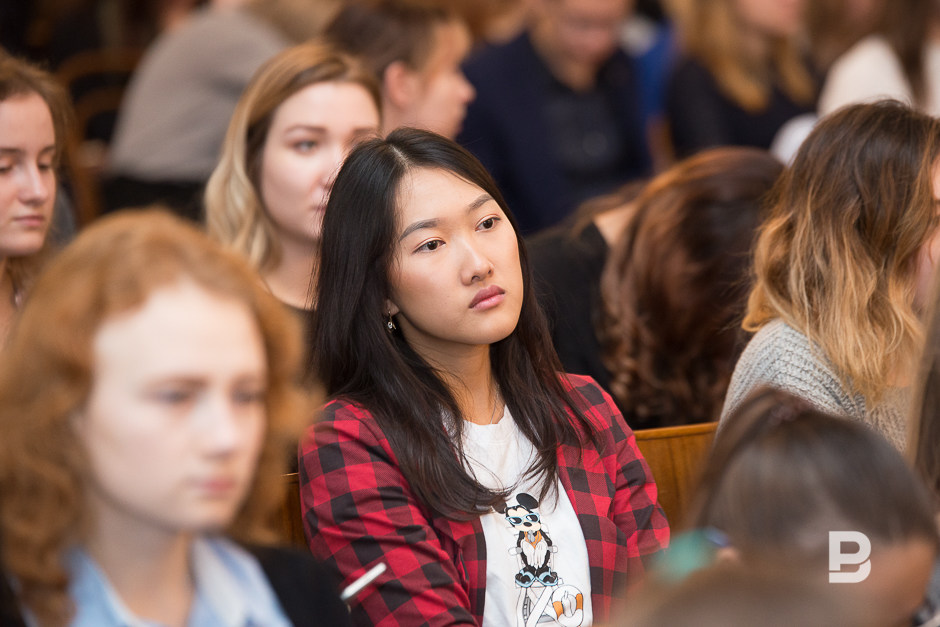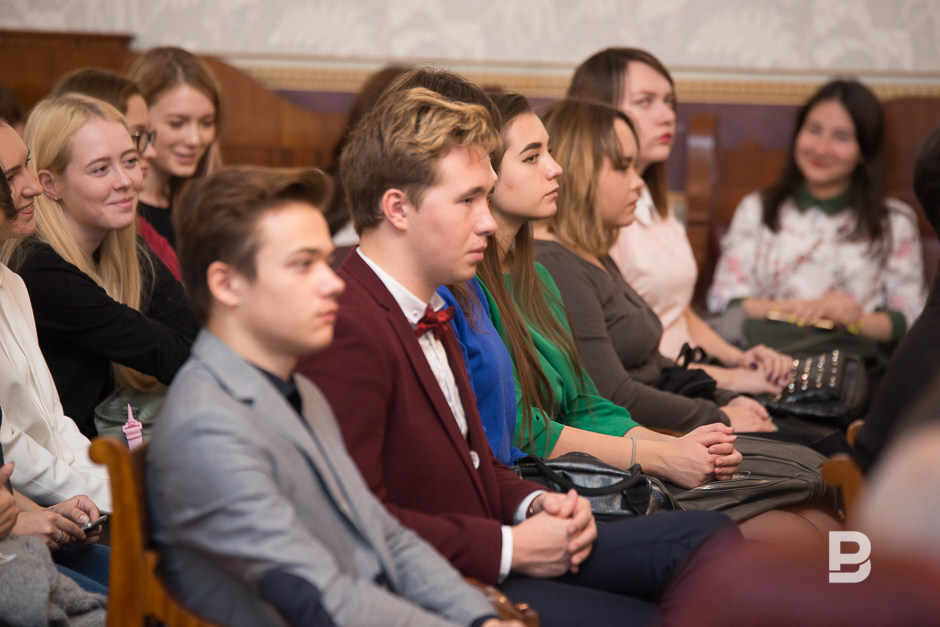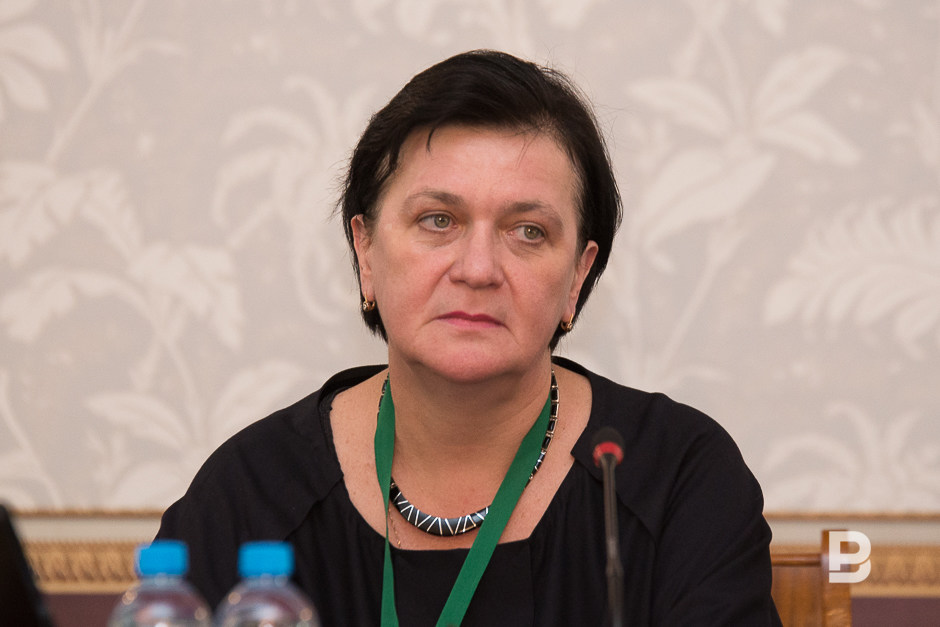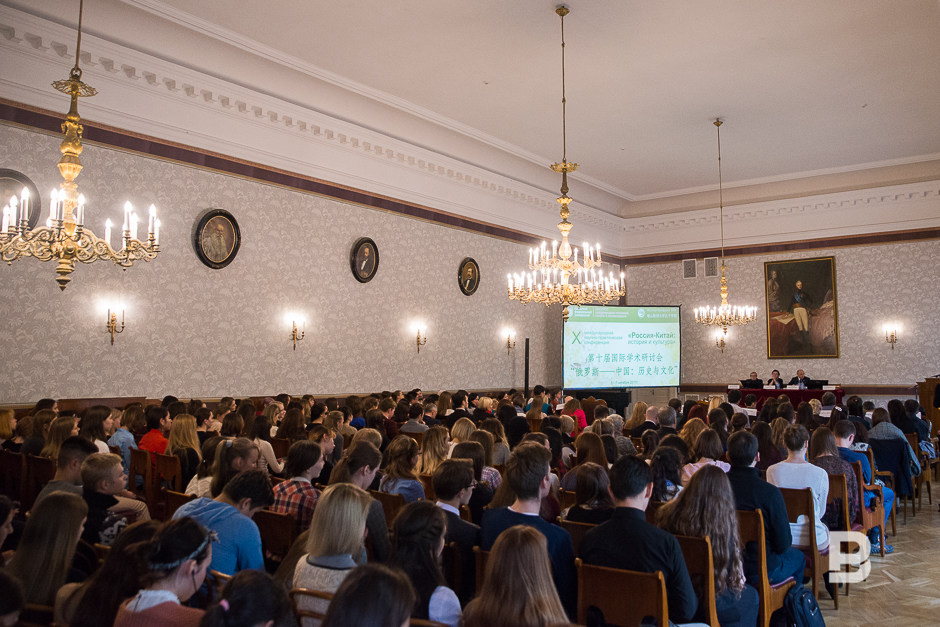''One Belt One Road Initiative is not a solo program of China but a symphony...''
Kazan Oriental studies remembered in the Kazan University
The 10th international scientific-practical conference ''Russia — China: history and culture'' was held in the Kazan Federal University. Its holding was timed to celebrate the 210th anniversary of Kazan academic Oriental studies, the 180th anniversary since the formation of the Department of Chinese Philology in the Imperial Kazan University, 60 years since the founding of the Society of Russian-Chinese friendship and the 10th anniversary of the Confucius Institute at the Kazan Federal University. Participating in the conference Consul General of the PRC in Kazan noted that for now the level of economic cooperation between Russia and China was lagging behind the level of the development of political relations, but the projects to create the New Silk Road and the construction of the Moscow-Kazan high speed railway will help to strengthen it. Read more in the material of Realnoe Vremya.
Russian Oriental studies originated in Kazan
The conference ''Russia — China: history and culture" is considered to be unique because there is no such sinological forum where the entire spectrum of problems in this field would be discussed on a regular basis anywhere else in Russia, even throughout Europe. The only ''competitor'' is the scientific conference ''The Society and State in China'', organized by the Institute of Oriental Studies of the Academy of Sciences of Russia. However, these forums are fundamentally different. If the RAS Institute of Oriental Studies puts emphasis solely on exchange of views between professional scientists, then the Kazan University — on practice as well, especially educational one. Thus, the conference became a platform for further development of Kazan academic Oriental studies, within its framework there were signed agreements on cooperation. We are talking about strengthening ties with the Institute of Oriental Manuscripts of the Russian Academy of Sciences and the diplomatic academy of the Ministry of Foreign Affairs of China: in the first case, the document will lay the basis for establishment of practice base for students of the KFU in the Institute of Oriental Manuscripts of the RAS, and in the second one – it will initiate a creation of conditions for full-scale cooperation in scientific and educational spheres.
More than 200 specialists in the field of Oriental studies have participated in the conference this year. Besides the researchers from Russia and China, there were also researchers from Azerbaijan, Armenia, Kazakhstan, Kyrgyzstan, Belarus, Turkmenistan, South Korea, Bulgaria. Welcoming the participants, the rector of the Kazan Federal University, Ilshat Gafurov, reminded that Oriental Studies in Russia originated in Kazan, when in the 19th century in the Kazan Imperial University it was established the first school of Oriental studies. Since that time, this direction has been one of the fundamental in the university. However, the rector decided not to remind that the fruitful development of the Oriental studies in Kazan was discontinued in the middle of the 19th century by decrees on Nicholas I, according to which the studying of Oriental studies was discontinued in Kazan and in Saint Petersburg it was established the Asian Institute.
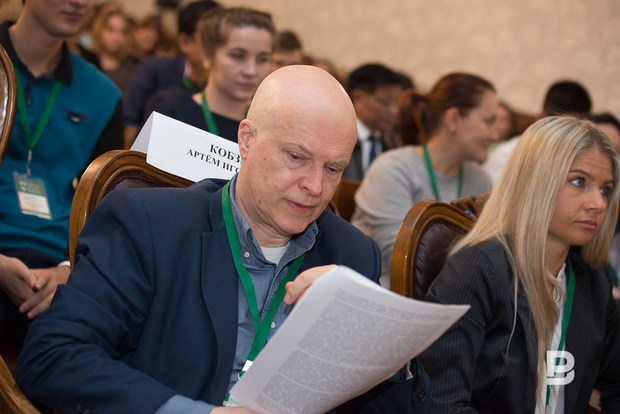
In 1837, it was established the first in Russia Department of Chinese language and literature in Kazan. Nowdays, the Kazan University cooperates with scientific centers of China. One of the oldest partners of the Kazan State University is Hunan Normal University, the cooperation agreement with which was signed in 1990. In 2007, in Kazan University it was opened the Confucius Institute on the base of the Institute of Oriental Studies. The Chinese language is taught in schools of Tatarstan. More than a thousand people study the Chinese language today in the university, and this number is growing. More than 700 Chinese students are studying in the Kazan University.
Thanks to China for Alipay and bicycle-sharing
Consul General of China in Kazan Wu Yingqin told that from 1 to 8 October China celebrates National Day of the People's Republic of China and congratulated his compatriots on this occasion. ''Over 68 years since the founding of the PRC, the Chinese nation has moved towards socialism with Chinese characteristics and have achieved unprecedented achievements.''
Further he told about Chinese achievements. The country's GDP grew from $12 billion in 1949 to $11 trillion in 2016, and GDP per capita — from $100 to $8,000. Today China has the second largest economy in the world, it is the second largest investor and ranked first by trade volume and foreign exchange reserves.
''China is rightfully considered to be the locomotive of the world economy,'' proudly said Consul General of China in Kazan.
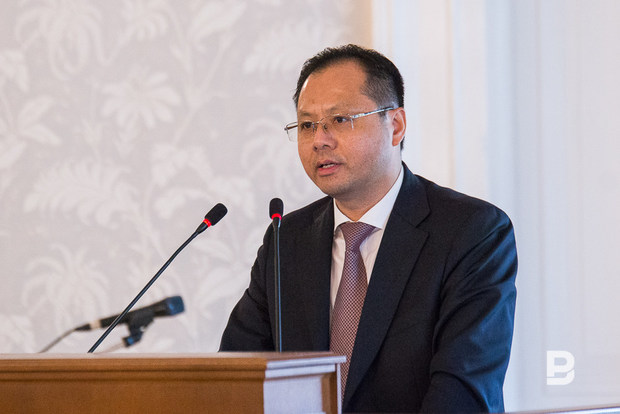
He spoke about the results of a survey conducted among foreign students in China. They called four new Chinese inventions. It is the high-speed railway, online shopping, Chinese online payment system Alipay and bicycle-sharing system.
The high-speed rail trains move at a rate of 350 kilometers per hour. The total length of this highway reaches 22,000 kilometers and occupies 65% of the length of all high speed roads in the world. It is unknown whether the trains of the Moscow-Kazan high-speed railway will move with the same speed, but Yingqin expressed hope that ''this important project will be implemented as quickly as possible.''
''One Belt One Road Initiative is not a solo program of China''
Speaking about the Chinese-Russian relations, Consul General noted that ''they have reached unprecedented levels in their history, it has been created a vivid example of mutual relations between the neighboring countries, great powers and new economic states.''
One of the joint projects of Russia and China, in addition to the HSR, can become the strategic concept of One Belt and One Road. In his opinion, the construction of the HSR will create a solid foundation for realization of this project. ''One Belt and One Road is an international initiative of China, it is aimed at improving existing and creating new trade routes, transport and economic corridors linking more than 60 countries of Central Asia, Europe and Africa, which will contribute to the development of trade relations between them and China.''
The idea of Silk Road Economic Belt was proposed by General Secretary of the Communist Party of China Xi Jinping and was first announced in his speech in Astana in the framework of the working visit in Kazakhstan in September 2013.
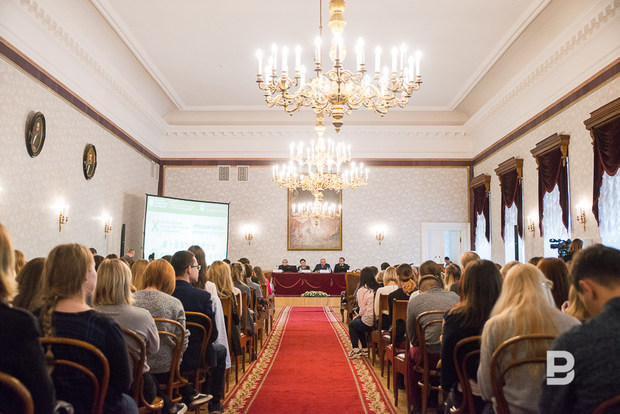
''One Belt and One Road Initiative is not a solo program of China but a symphony with the participation of all countries in the area of the Silk Road,'' said Yingqin.
In conversation with reporters, Consul General of China in Kazan said that the establishment in Kazan of the Consulate General of China will be an important step for Russian-Chinese partnership. In his opinion, economic cooperation between Russia and China is being at the initial stage and has a small volume that is lagging behind the high level of political relations between China and Russia.
He stated that the Consulate has been established but not officially opened yet. This event will take place not earlier than in 2018. Yingqin believes that the establishment of the Consulate General in Kazan is of great importance for the cooperation of China and Russia. Besides, the regions of the Volga Federal District have been allocated an important role here. He reminded about the formed five years ago cooperation format ''Volga-Yangtze'' between the regions of the Volga Federal District and Chinese provinces in the upper and middle reaches of the Yangtze River. As previously reported by Plenipotentiary Envoy of Russian President to the Volga Federal District Mikhail Babich, the result of this project was the signing of 27 interregional agreements. According to him, there are 68 investment projects being under development, 21 of which are in advanced stage of preparation and 47 are being developed for subsequent implementation in the regions.
''Today Chinese entrepreneurs demonstrate a great interest in investments in Russia, in particular in Tatarstan. The Russian regions, in their turn, strive to create favourable investment climate for Chinese investments. The company Haier opeartes in Tatarstan, it sets an example for other Chinese companies,'' the diplomat noted.
